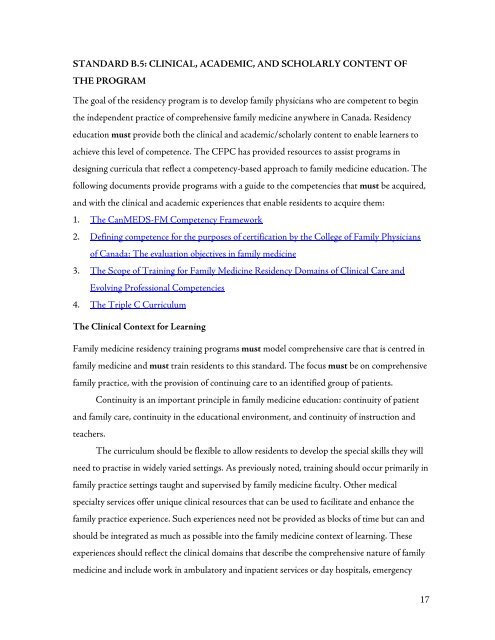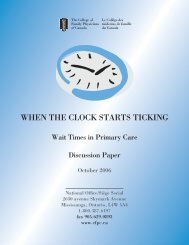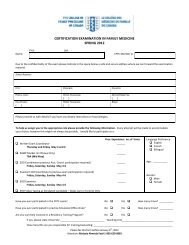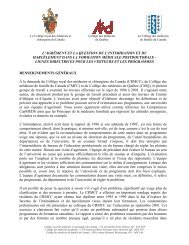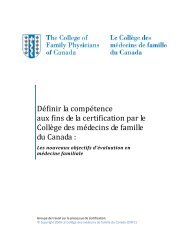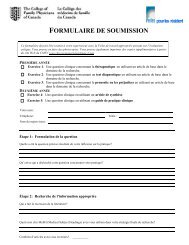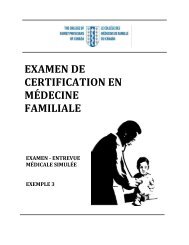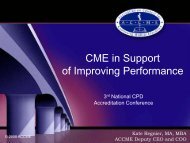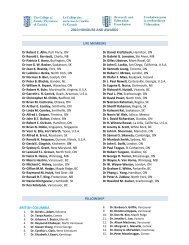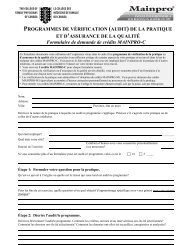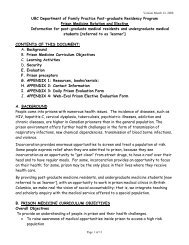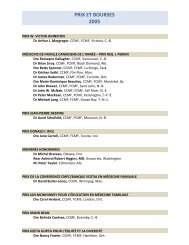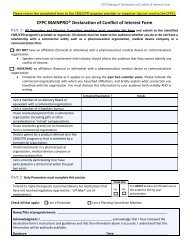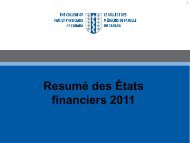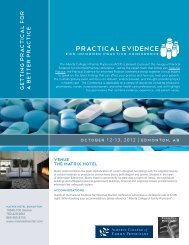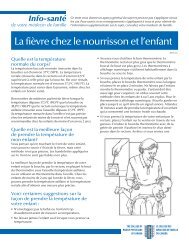The Red Book - The College of Family Physicians Canada
The Red Book - The College of Family Physicians Canada
The Red Book - The College of Family Physicians Canada
- No tags were found...
You also want an ePaper? Increase the reach of your titles
YUMPU automatically turns print PDFs into web optimized ePapers that Google loves.
STANDARD B.5: CLINICAL, ACADEMIC, AND SCHOLARLY CONTENT OFTHE PROGRAM<strong>The</strong> goal <strong>of</strong> the residency program is to develop family physicians who are competent to beginthe independent practice <strong>of</strong> comprehensive family medicine anywhere in <strong>Canada</strong>. Residencyeducation must provide both the clinical and academic/scholarly content to enable learners toachieve this level <strong>of</strong> competence. <strong>The</strong> CFPC has provided resources to assist programs indesigning curricula that reflect a competency-based approach to family medicine education. <strong>The</strong>following documents provide programs with a guide to the competencies that must be acquired,and with the clinical and academic experiences that enable residents to acquire them:1. <strong>The</strong> CanMEDS-FM Competency Framework2. Defining competence for the purposes <strong>of</strong> certification by the <strong>College</strong> <strong>of</strong> <strong>Family</strong> <strong>Physicians</strong><strong>of</strong> <strong>Canada</strong>: <strong>The</strong> evaluation objectives in family medicine3. <strong>The</strong> Scope <strong>of</strong> Training for <strong>Family</strong> Medicine Residency Domains <strong>of</strong> Clinical Care andEvolving Pr<strong>of</strong>essional Competencies4. <strong>The</strong> Triple C Curriculum<strong>The</strong> Clinical Context for Learning<strong>Family</strong> medicine residency training programs must model comprehensive care that is centred infamily medicine and must train residents to this standard. <strong>The</strong> focus must be on comprehensivefamily practice, with the provision <strong>of</strong> continuing care to an identified group <strong>of</strong> patients.Continuity is an important principle in family medicine education: continuity <strong>of</strong> patientand family care, continuity in the educational environment, and continuity <strong>of</strong> instruction andteachers.<strong>The</strong> curriculum should be flexible to allow residents to develop the special skills they willneed to practise in widely varied settings. As previously noted, training should occur primarily infamily practice settings taught and supervised by family medicine faculty. Other medicalspecialty services <strong>of</strong>fer unique clinical resources that can be used to facilitate and enhance thefamily practice experience. Such experiences need not be provided as blocks <strong>of</strong> time but can andshould be integrated as much as possible into the family medicine context <strong>of</strong> learning. <strong>The</strong>seexperiences should reflect the clinical domains that describe the comprehensive nature <strong>of</strong> familymedicine and include work in ambulatory and inpatient services or day hospitals, emergency17


